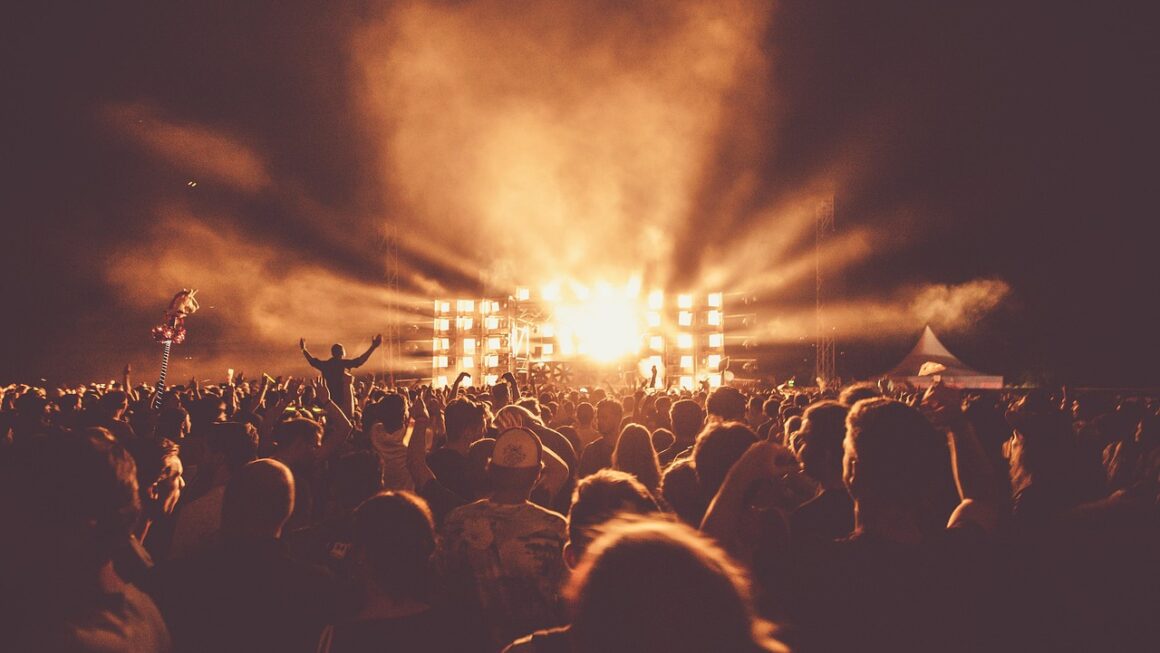Pop culture. The very phrase conjures up images of trending memes, viral videos, chart-topping songs, and captivating television shows. It’s the ever-evolving reflection of our society, a shared experience that binds us together and shapes our conversations. From fashion trends to social media challenges, pop culture permeates nearly every aspect of our lives. But what exactly is it, and why is it so important? Let’s dive into the multifaceted world of pop culture and explore its influence.
Defining Pop Culture: More Than Just Trends
Pop culture, short for popular culture, refers to the prevailing trends, beliefs, and practices that are widespread within a society at a given time. It encompasses a vast array of elements, from music and movies to fashion and technology.
What Makes Something “Pop Culture”?
The key to understanding pop culture lies in its accessibility and widespread appeal. Something becomes part of pop culture when:
- It resonates with a large segment of the population.
- It is easily accessible through various media outlets.
- It reflects current social values, interests, or concerns.
- It is often commercially successful and generates buzz.
For example, the “Stranger Things” series became a pop culture phenomenon because it tapped into 80s nostalgia, featured compelling characters, and was readily available on Netflix, reaching a massive global audience.
Distinguishing Pop Culture from Other Forms of Culture
While pop culture is often intertwined with high culture and folk culture, it’s distinct in its reach and immediacy. High culture, often associated with elite institutions and artistic endeavors, typically caters to a smaller, more specialized audience. Folk culture, rooted in tradition and heritage, is often passed down through generations within specific communities. Pop culture, on the other hand, is characterized by its constant evolution, its ability to transcend social boundaries, and its emphasis on novelty and innovation.
The Impact of Pop Culture on Society
Pop culture’s influence extends far beyond mere entertainment. It plays a significant role in shaping our values, beliefs, and behaviors.
Social Influence and Identity Formation
Pop culture acts as a mirror, reflecting and reinforcing societal norms while also challenging them.
- Role Models: Celebrities and fictional characters often become role models, influencing how we perceive ourselves and others.
- Social Norms: Trends in fashion, language, and social behavior are often shaped by what’s popular in movies, music, and online.
- Identity Expression: Pop culture provides a platform for individuals to express their identities and connect with like-minded people.
The rise of K-Pop, for example, has not only popularized Korean music globally but also influenced fashion trends, dance styles, and even beauty standards, empowering fans to embrace Korean culture and connect with others who share their passion.
Economic and Commercial Impacts
Pop culture drives a massive industry, fueling economic growth and shaping consumer behavior.
- Marketing and Advertising: Brands often leverage pop culture references to connect with consumers and promote their products.
- Entertainment Industry: Movies, music, and video games generate billions of dollars in revenue annually, creating countless jobs and opportunities.
- Tourism and Travel: Popular filming locations and cultural events attract tourists from around the world, boosting local economies.
The “Harry Potter” franchise, for instance, has not only generated billions of dollars in book and movie sales but also spawned theme parks, merchandise, and tourism opportunities, creating a global economic ecosystem centered around the wizarding world.
Key Elements of Modern Pop Culture
Modern pop culture is a dynamic and multifaceted landscape, constantly evolving under the influence of technology and social change.
Music: The Universal Language
Music has always been a cornerstone of pop culture, shaping trends, inspiring movements, and uniting people across borders.
- Streaming Services: Platforms like Spotify and Apple Music have revolutionized how we consume music, making it more accessible than ever before.
- Genre Blending: Artists are increasingly experimenting with different genres, creating unique and innovative sounds.
- Social Media Influence: Music trends often go viral on platforms like TikTok and Instagram, catapulting artists to fame.
The success of artists like Billie Eilish, who gained popularity through SoundCloud and social media, demonstrates the power of online platforms in shaping the music industry.
Film and Television: Visual Storytelling
Film and television continue to be powerful forces in pop culture, shaping our perceptions of the world and providing a shared cultural experience.
- Streaming Wars: The rise of streaming services has transformed the television landscape, offering viewers a wider range of content and challenging traditional networks.
- Superhero Mania: Superhero movies and TV shows continue to dominate the box office and streaming charts, captivating audiences with their action-packed storylines and iconic characters.
- Nostalgia: Remakes, reboots, and sequels that tap into nostalgia are increasingly popular, appealing to audiences who grew up with the original content.
The Marvel Cinematic Universe (MCU) is a prime example of how a successful franchise can dominate pop culture, influencing everything from movie trends to merchandise sales.
Social Media: The Digital Town Square
Social media has become an integral part of pop culture, shaping trends, connecting people, and providing a platform for self-expression.
- Influencer Culture: Social media influencers have become powerful voices in shaping consumer behavior and promoting trends.
- Viral Challenges: Online challenges often go viral, engaging millions of users and creating a sense of community.
- Meme Culture: Memes have become a form of communication and social commentary, spreading rapidly across the internet and shaping online discourse.
The popularity of TikTok, with its short-form videos and viral challenges, exemplifies the power of social media in shaping pop culture trends.
The Future of Pop Culture: Trends and Predictions
Predicting the future of pop culture is a challenging task, but certain trends suggest potential directions for the coming years.
The Continued Rise of Digital Culture
Digital platforms will likely continue to play a dominant role in shaping pop culture, with virtual reality, augmented reality, and other emerging technologies offering new ways to experience entertainment and connect with others.
- Metaverse Experiences: Virtual worlds and immersive experiences will become increasingly popular, offering new opportunities for social interaction and entertainment.
- AI-Generated Content: Artificial intelligence may play a larger role in content creation, generating music, movies, and other forms of entertainment.
Increased Focus on Diversity and Inclusion
As society becomes more diverse and inclusive, pop culture will likely reflect these changes, with greater representation of marginalized groups and a wider range of perspectives.
- Diverse Storytelling: Movies and TV shows will feature more diverse casts and storylines that explore a wider range of experiences.
- Social Activism: Celebrities and influencers will continue to use their platforms to advocate for social justice and raise awareness about important issues.
The Blurring Lines Between Reality and Entertainment
The lines between reality and entertainment will continue to blur, with reality TV, social media, and other forms of media creating a more immersive and interactive experience.
- Interactive Storytelling: Viewers will have more control over the narrative in movies and TV shows, shaping the outcome of the story.
- Personalized Experiences: Entertainment will become more personalized, tailored to individual preferences and interests.
Conclusion
Pop culture is a powerful force that shapes our society, influences our behavior, and reflects our values. Understanding its dynamics is essential for navigating the complexities of the modern world. From music and movies to social media and technology, pop culture is constantly evolving, offering new ways to connect, express ourselves, and experience the world around us. By staying informed and engaged, we can better understand its impact and harness its potential for positive change.




